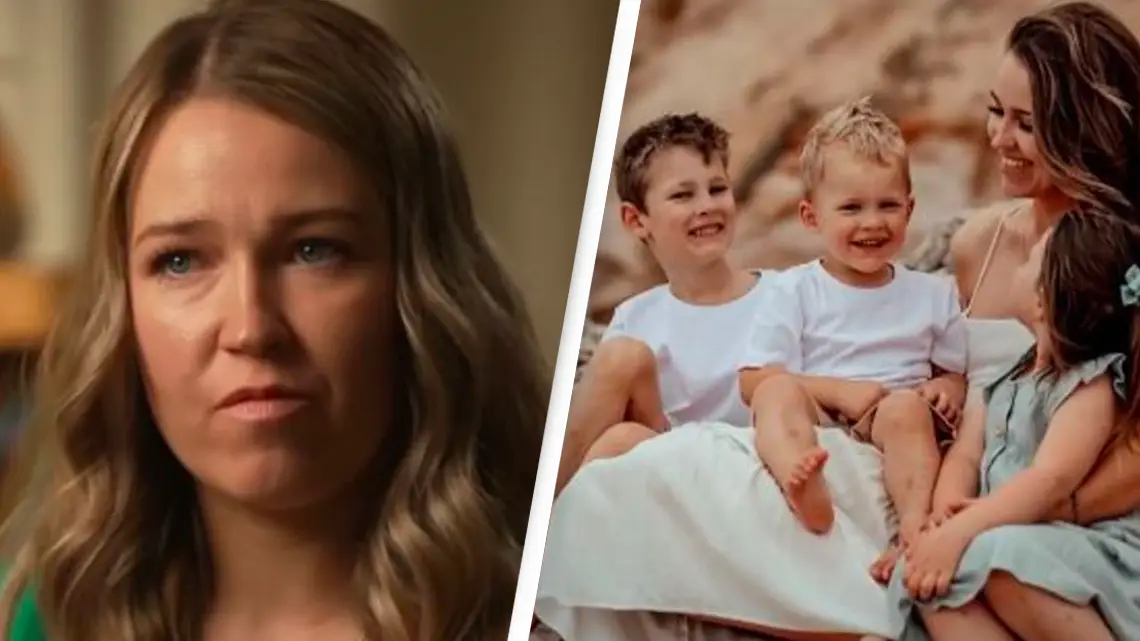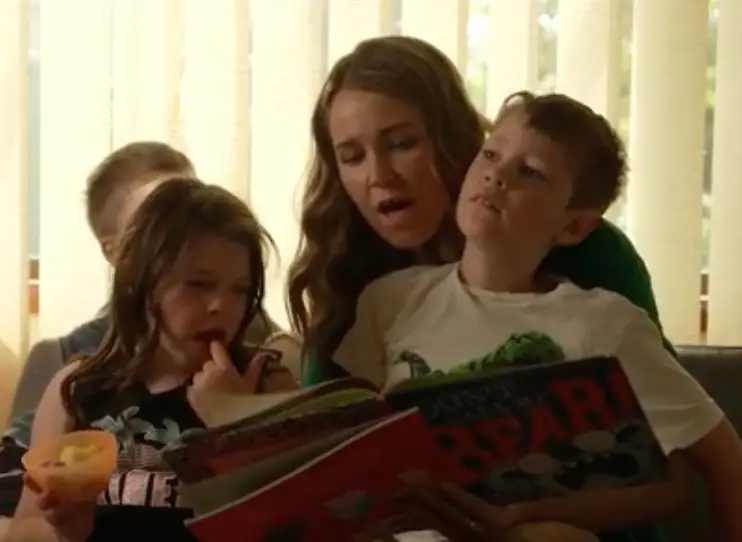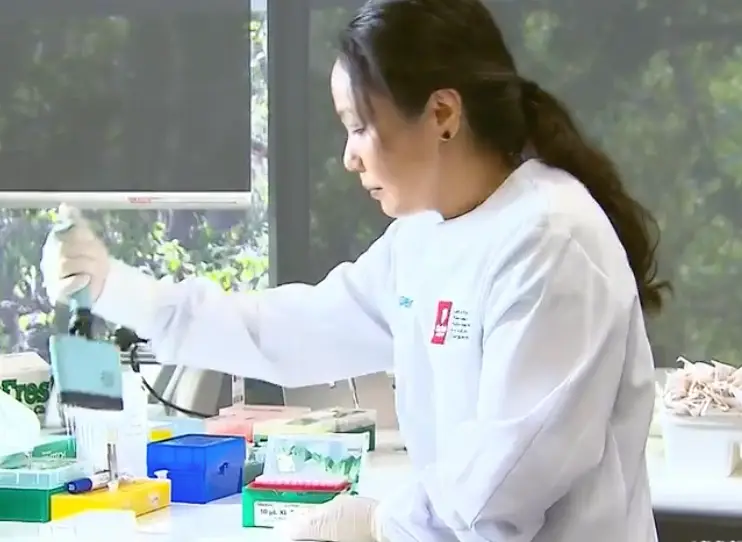
A mother-of-three has vowed to give her kids the best life possible after she was given devastating news.
South Australian mum Renee Staska had her life turned upside down when her youngest child fell ill, with doctors discovering he had an enlarged liver and spleen at only eight months old.
Austin, now aged four, was later diagnosed with childhood dementia, with the news broken to her by a doctor with a handwritten note.
"They found Niemann-Pick disease type C1, which is a type of childhood dementia," she told A Current Affair.
Advert
"I was given it on a piece of paper. They sort of said, ‘Look, this is what it is’.”
She added: "It's terminal. There's no treatment, there's no cure."

Niemann-Pick disease forms when there is a mutation in both strands of DNA inherited by each parent from their own metamorphosed cells.
As both parents already have mutated DNA that causes the killer disease, Renee discovered there was also a 25 per cent chance her older children Hudson, eight, and Holly, six, also had the illness.
And, as it turned out, they did.
"I decided to get them blood tested, so I could stop worrying all the time and they both came back positive as well," Renee said.
"I cried and I cried and very soon we were introduced to palliative care, which I wasn't even aware was a thing for children."
Now the mother-of-three will have to face the hardest thing possible for a parent: living to see the death of her own children.
"Most children with Niemann-Pick disease type C1 don’t live to see their 20th birthday," she explained.

According to Dementia Australia, around one in every 2,800 babies globally are born with a condition that causes childhood dementia each year.
There are roughly 2,300 Aussie kids living with the disease, and 75 per cent of them won't ever get old enough to graduate from high school.
But, in a landmark investment by the Australian Federal Government, AUD$2.7 million has been handed over to childhood dementia researchers to help them in their fight for a cure.
But Dr May Aung-Htut, a senior researcher at Perth's Murdoch University, revealed that any meaningful medical help from the drug she is working on could take as long as 20 years to come.
"The time it takes from the discovery to the clinic [and it] varies a lot, so it can take as long as 20 years or it can take as short as 10 months," Dr Aung-Htut said, as per news.com.au.
As for Renee and her three kids, she revealed it is her children's fierce determination to live on that helps her get up each day.
"I have to be strong for them, so that they can be strong," she said.
